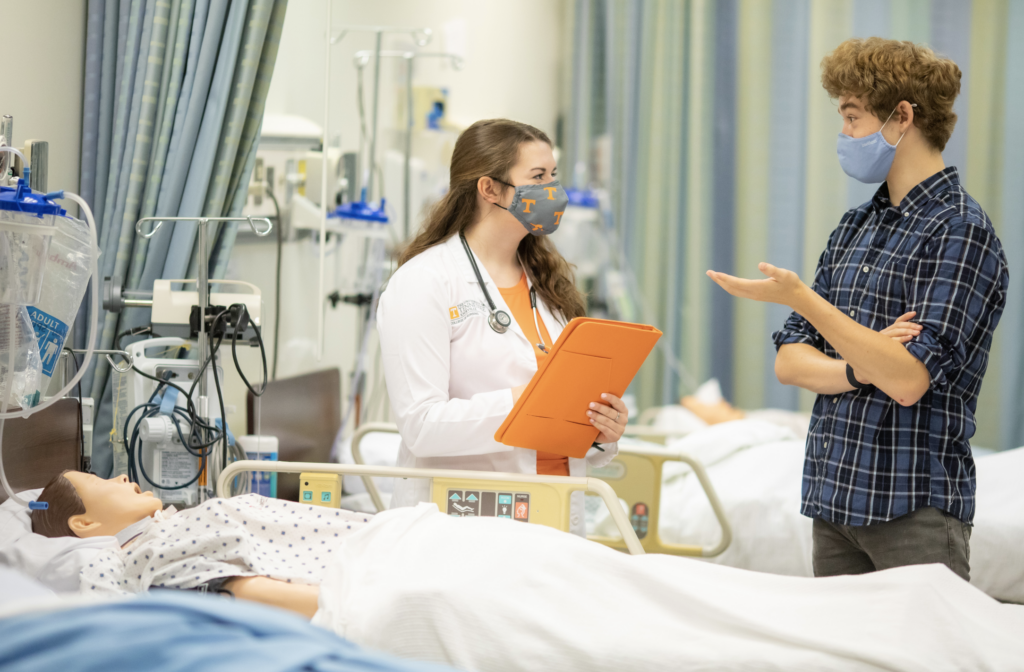The Nurse Anesthesia Concentration (NAC) at the college is a rigorous 38-month program that will permit the graduate an opportunity to take his or her place among the ranks of the highly respected CRNAs who will be molding the health care history of the next century. Graduates are awarded the Doctor of Nursing Practice (DNP) degree, are eligible to sit for the National Certification Examination for CRNAs, and are typically employed less than six months after graduation.
The goal of the nurse anesthesia concentration is to prepare qualified registered nurses to become anesthesia practitioners with an advanced scientific knowledge base and a comprehensive array of clinical skills.
Visit the Nurse Anesthesia Website.

PROGRAM FEATURES
- Full-time, year-round enrollment only, with hybrid curriculum including on-campus, online synchronous, and asynchronous activities
- Students are required to live in the Knoxville area where the majority of clinical sites are located.
- On-site requirements provide opportunities for networking with peers and faculty, formative learning, and engagement in scholarly inquiry.
- The curriculum contains courses in the principles and practices of general and regional anesthesia across all general surgery and specialty areas, including neuro, cardiovascular/thoracic, OB, and pediatrics. Considerable course work is devoted to pathophysiology and pharmacology in addition to theoretical foundations of practice, professional issues, and evidence-based practice. Simulation is incorporated into the curriculum in addition to a strong emphasis on clinical experiences.
CURRICULUM
Prospective applicants can review the current Program of Study to learn more about the sequencing of courses and timeline for the program.
PROGRAM FEES

Please note that the tuition and cost estimates listed here are based on the current tuition costs and may be subject to increases by the Board of Trustees. These resources should allow you to calculate an estimated tuition and fees cost per semester of your program based on the current tuition rates.